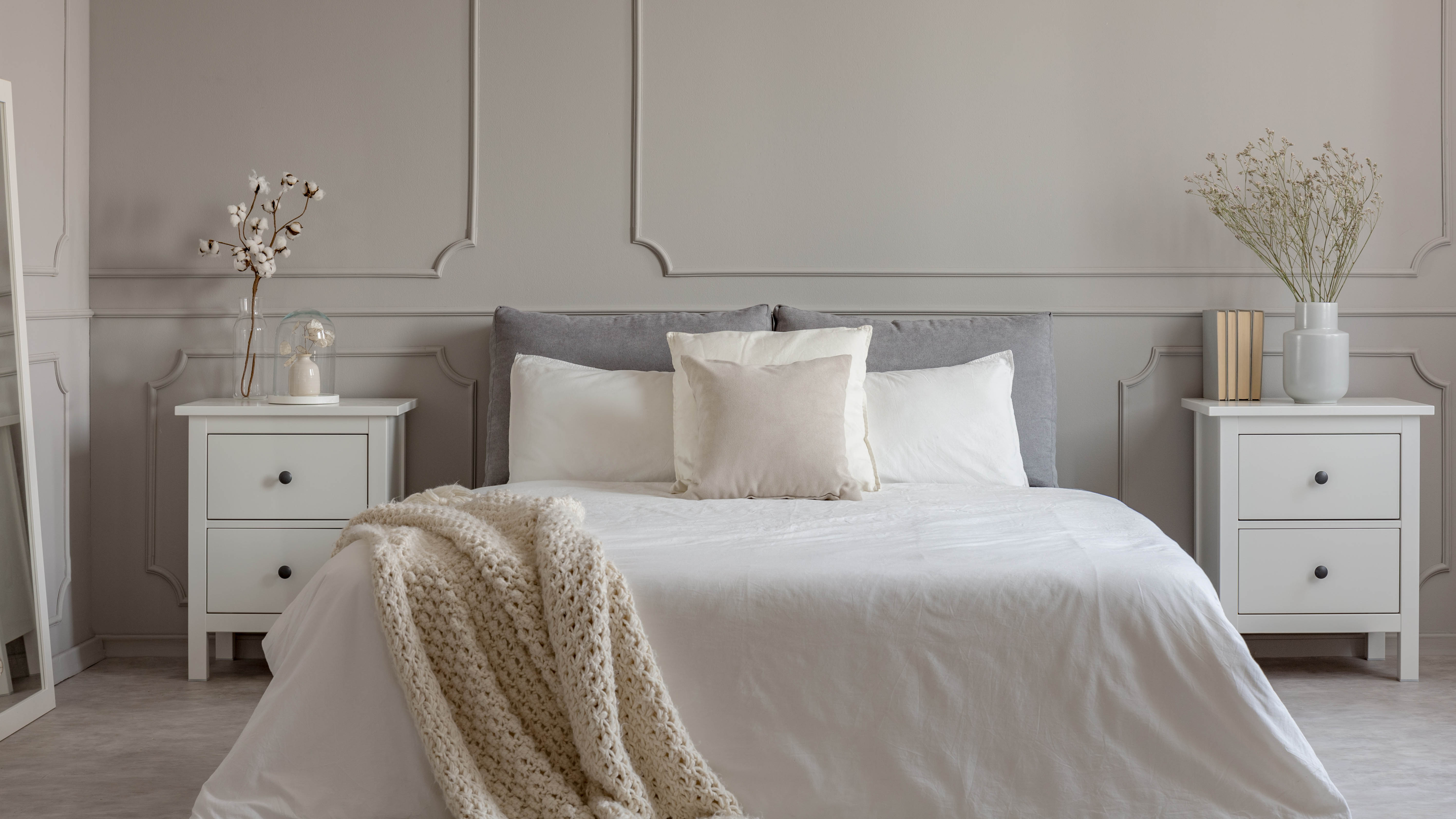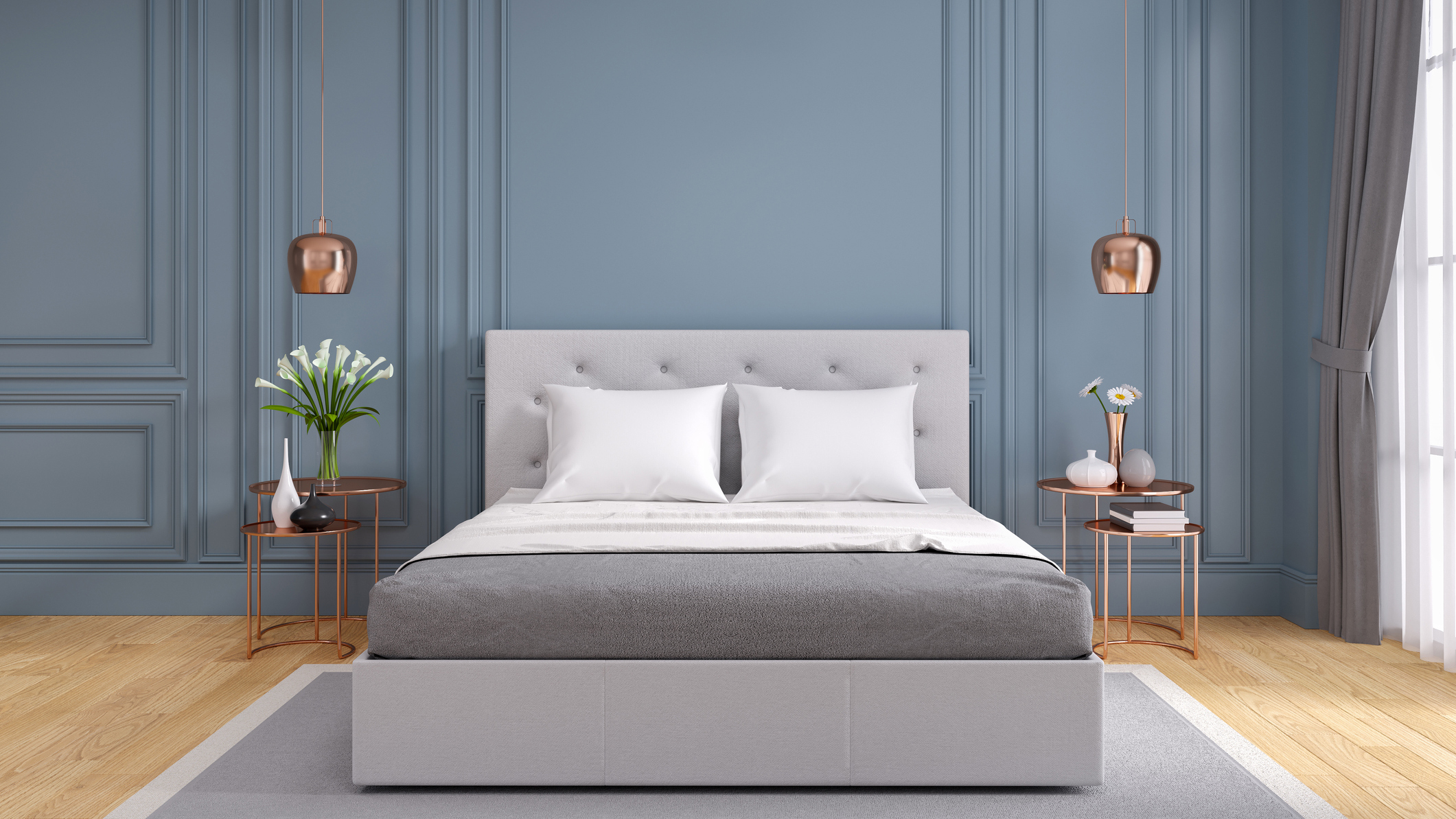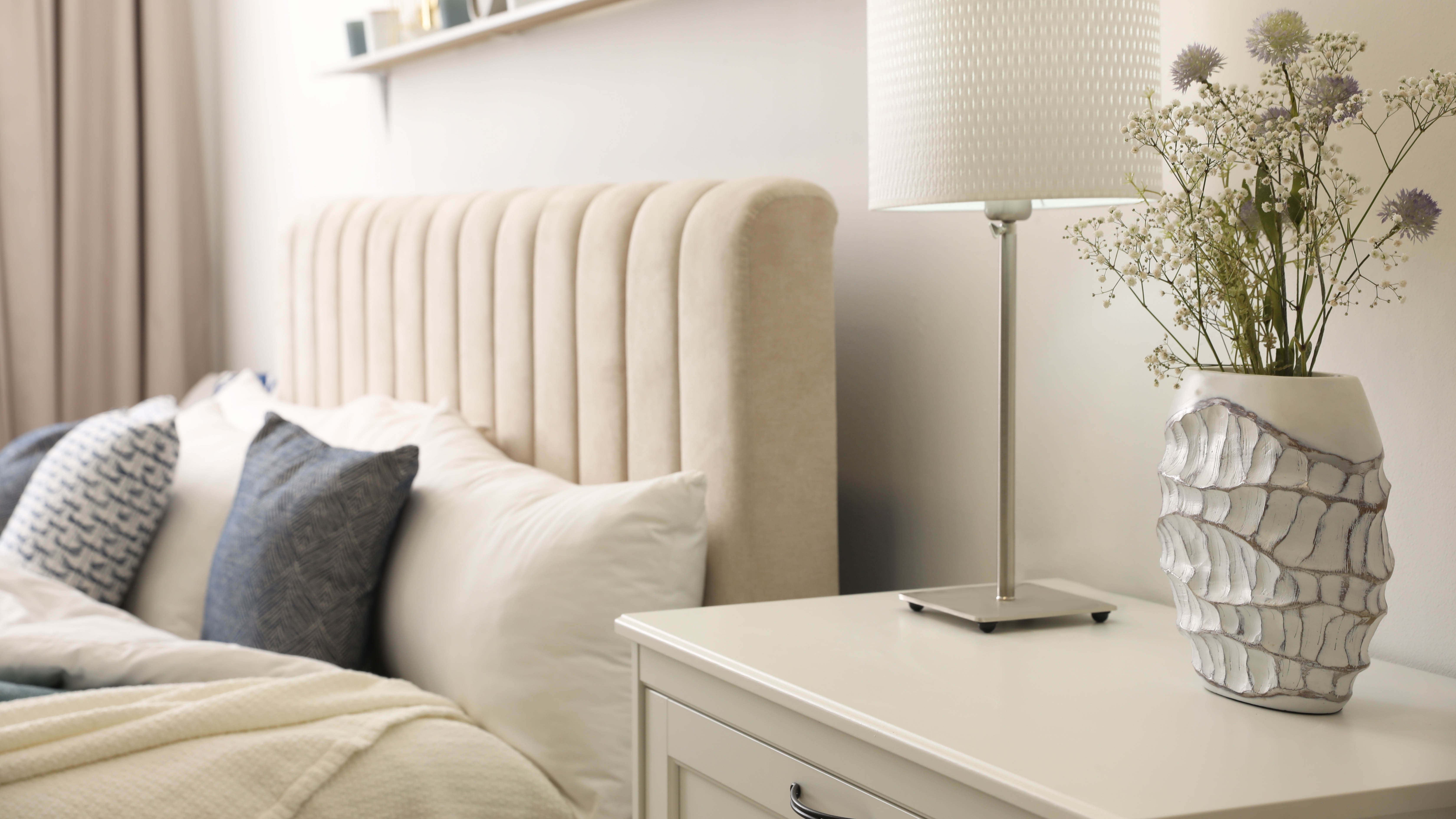Should your bed face the door? Here's what the experts think
Does your bed face the door?

The bed is the most important piece of furniture in our sleeping domain. Besides investing in one of the best mattresses or pillows, the way we arrange our bedroom can also help to create a calming environment and peaceful sleep. And if you’re wondering about the best place to position your bed, you’ll want to know whether your bed should face the door or not.
According to Feng Shui principles, the ancient art of Chinese geomancy, everything in our environment possesses energy. Such flow of energy (chi) in and around your bedroom can have a positive or negative impact on wellbeing, sleep, relationships and much more. And while there has been much debate about where to place your bed, we ask the sleep experts what their thoughts are.
In addition, by adopting these 9 Feng Shui bedroom tips, you might get a better night’s sleep. In the meantime, we find out if your bed should face the door, according to the experts.
Position your bed in the “command position”

The general consensus is that your bed should be placed in the centre or ‘command’ position in the bedroom. In addition, it should be diagonally opposite the door. According to Feng Shui principles, this allows a clear vantage point of the door when lying in bed, and is the best position to receive positive energy.
“For good Feng Shui, position your bed diagonally to your bedroom door (Commanding Position). So you should be able to see the door from your bed, but your feet aren’t pointing directly at it (Coffin Position),” says Claire Davies, our Sleep Editor at Tom’s Guide and a Certified Sleep Science Coach. “Where you position your bed has a big impact on your stress levels, how well you sleep and how easily you could be disturbed in the night. If your bed is positioned directly in line with the door, you’ll feel on edge all night and won’t benefit from deep, restorative sleep. Over time, that could cause health issues.”
What if I have a small bedroom?

If you have a compact or oddly-shaped room, you might not necessarily have a choice (or space), where you can place your bed. However, there are other ways to encourage positive energy around your bed. “Making sure you have a footboard and say an ottoman at the end of the bed or if there is enough space, a chest of drawers, will help protect the bed from the energy coming in from the bedroom door.” advises Sarah A McAllister, Classical Feng Shui Master & Wellness Design Expert, at Feng Shui & Wellness Design. “Having a solid wall behind the bedhead and also a bedhead (not just a bare mattress against the wall) is also advisable. Worrying about the position of the bed won’t help either. It could be that the direction it faces is good for you, so this will offset some of the negative effects of facing the door.
“When the bed is in a strong Feng Shui position there is a subconscious feeling of safety and security which helps the nervous system fully relax and sleep improves. I have had so many cases of helping kids and adults sleep better just by changing the position of their bed, it’s really gratifying.”
Sign up to get the BEST of Tom's Guide direct to your inbox.
Get instant access to breaking news, the hottest reviews, great deals and helpful tips.
What’s more, Feng Shui believes that headboards provide a feeling of support in life and relationships. If your bed doesn’t already have one, choose a soft, upholstered headboard with soft edges if possible. Avoid heavy cast-iron headboards or those with bars that can create negative energy in such a relaxing space.
If you want to maximize on space, you might also want to try these hacks to make a small bedroom look bigger.
What are examples of bad Feng Shui?

When arranging your bedroom, there are also certain no-nos that go against Feng Shui principles. One example includes not placing your bed in front of a window. “Above all else, avoid positioning your bed in front of a window,” says Davies, “a principle of Feng Shui is that windows shouldn’t have anything placed in front of them otherwise you’ll block inflowing energy.”
In addition, avoid placing anything above the bed such as heavy framed artwork or storage cupboards. Also, if you’re installing an ensuite bathroom, you’ll also need to consider the positioning and energy flow.
“When designing an ensuite bathroom, take care not to have sinks behind the bedhead as this will feel destabilising,” says McAllister, “Heavy framed artwork above the bed is also not ideal, and definitely avoid storage cupboards or sloped attic ceilings as they press down on the aura too much and can cause headaches and nightmares.
When the bed is in a negative Feng Shui position we feel like we can’t fully rest and feel subconsciously under a mild threat. This has disastrous consequences for our mental health as our sleep will suffer and once sleep is affected, all the bodily detoxification and rejuvenation processes are thrown out of balance and don’t work properly.”
So, in a nutshell, you should position your bed diagonally to your bedroom door to achieve positive flow of energy, which can assist in you having sweet dreams. It's certainly worth a try!
What does Feng Shui mean?
Traditionally, the Chinese words 'Feng Shui' translate to "wind" and "water." Wind represents our breath, and humans are almost 60 percent water. In Chinese culture, wind and water are both associated with good health.
More from Tom's Guide

As the Homes Content Editor, Cynthia Lawrence covers all things homes, interior decorating, and garden-related. She has a wealth of editorial experience testing the latest, ‘must-have’ home appliances, writing buying guides and the handy ‘how to’ features.
Her work has been published in various titles including, T3, Top Ten Reviews, Ideal Home, Real Homes, Livingetc. and House Beautiful, amongst many.
With a rather unhealthy obsession for all things homes and interiors, she also has an interior design blog for style inspiration and savvy storage solutions (get rid of that clutter!). When she’s not testing cool products, she’ll be searching online for more decor ideas to spruce up her family home or looking for a great bargain!
